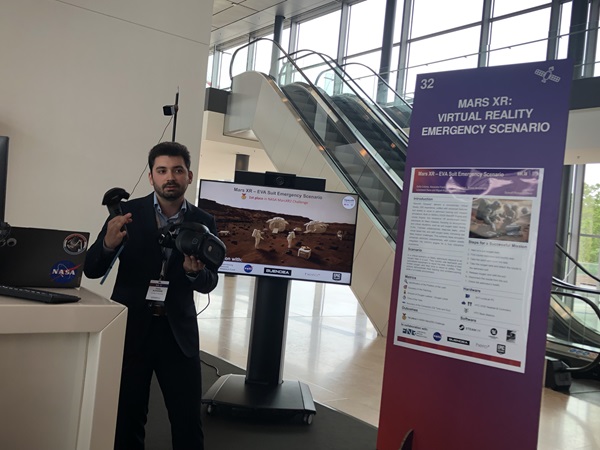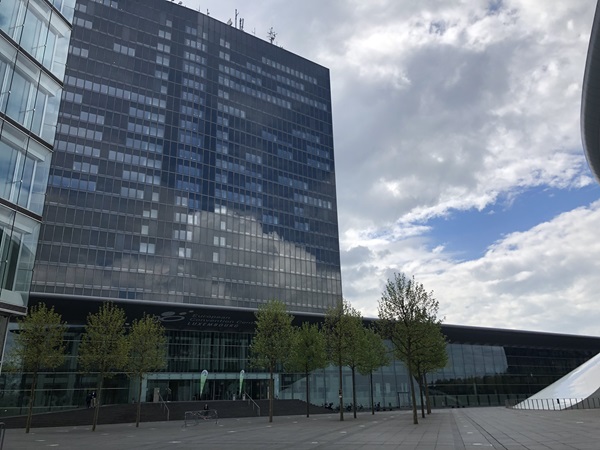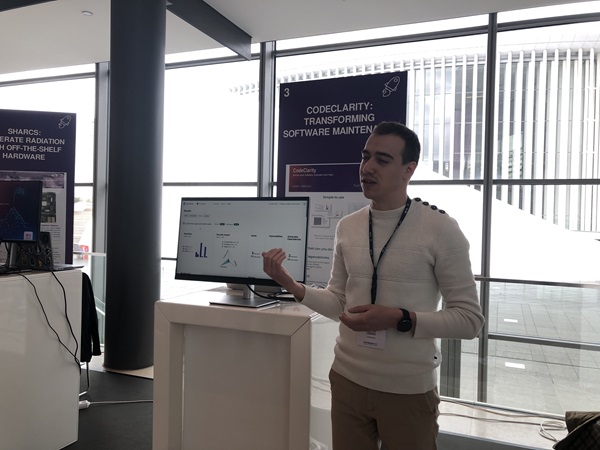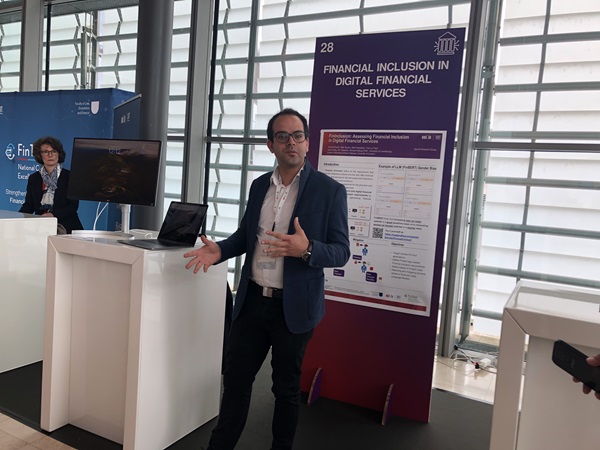 Mars XR: Virtual Reality Emergency Scenarios;
Credit: Otilia Dragan/Chronicle.lu
Mars XR: Virtual Reality Emergency Scenarios;
Credit: Otilia Dragan/Chronicle.lu
On Tuesday 7 May 2024, the Interdisciplinary Centre for Security, Reliability and Trust (SnT) of the University of Luxembourg held a new edition of its Partnership Day at the European Convention Center Luxembourg (ECCL) in Luxembourg-Kirchberg.
Head of Technology Transfer Office of SnT, Dr Carlo Duprel, noted that the SnT is celebrating its fifteenth anniversary this year. He highlighted the growth the centre experienced, going from 25 to almost 500 employees. Because the centre is open to the “outside world”, he added that it can provide good support to the University of Luxembourg, as it can receive additional funding for a variety of projects. These can be related to virtual reality, cybersecurity, fintech, autonomous driving or even space systems. He noted that SnT focuses on long-term research projects.
The press visit showcased various projects, all of which explored practical applications. Among them, there was a research project with potential for a startup named “Codeclarity”, a software maintenance project aiming to analyse code and enhance products’ security as well as increase compliance. This project benefited from the Fit 4 Start acceleration programme.
Another project focused on promoting sustainable electricity, with a view to ensure more transparency around energy consumption and include consumers into the decision process. This means that, in a first stage, they would conduct a survey to figure out what is important to consumers to later create an app and thereby enable electricity users to be mindful of when the electricity mix is more “green” and choose to run their home appliances then.
Further projects presented the possible applications of modern radar systems. Having become “as small as a fingernail”, such technology can help to wirelessly monitor vitals and to provide imaging without a camera, thereby helping to guard privacy. This technology can also be used to see through wall fabrics and could be used in construction, among other applications.
A space technology project, “Mars XR: Virtual Reality Emergency Scenarios” was also presented. It received the first prize in NASA’s MarsXR2 Challenge and will be used to advance further training for astronauts. Nevertheless, this technology also has possible applications for robotic arm training, for instance.
The other showcased projects were one related to the “post-quantum world”, aiming to create algorithms that would resist to quantum computers’ ability to provide multiple configurations at once, and one named FinInclusion, related to financial services and AI. FinInclusion aims to assess financial inclusion in digital financial services. Its main reported objectives were targeting diverse FinTech applications, defining Fintech-app-related finance inclusion requirements, detecting biases in Fintech apps as well as mitigating fairness issues in financial Large Language Models.
Boost for research into autonomous systems at SnT
On this occasion, a significant announcement was made, namely the emergence of new research projects to start thanks to the €1.5 million grant from the FNR's Industrial Partnership Block Grant program, combined with co-financing from several partners.
SnT at the University of Luxembourg has obtained support from the Luxembourg National Research Fund (FNR) to carry out a research programme entitled “Autonomous Systems for Earth, Air and Space” (ATLAS). The research projects are co-financed by the SnT as well as by a consortium of industrial partners and administrations, including eBus Competence Center, Emile Weber, GomSpace, Gradel, IEE, Nexxtlab, Telindus and the City of Luxembourg.













